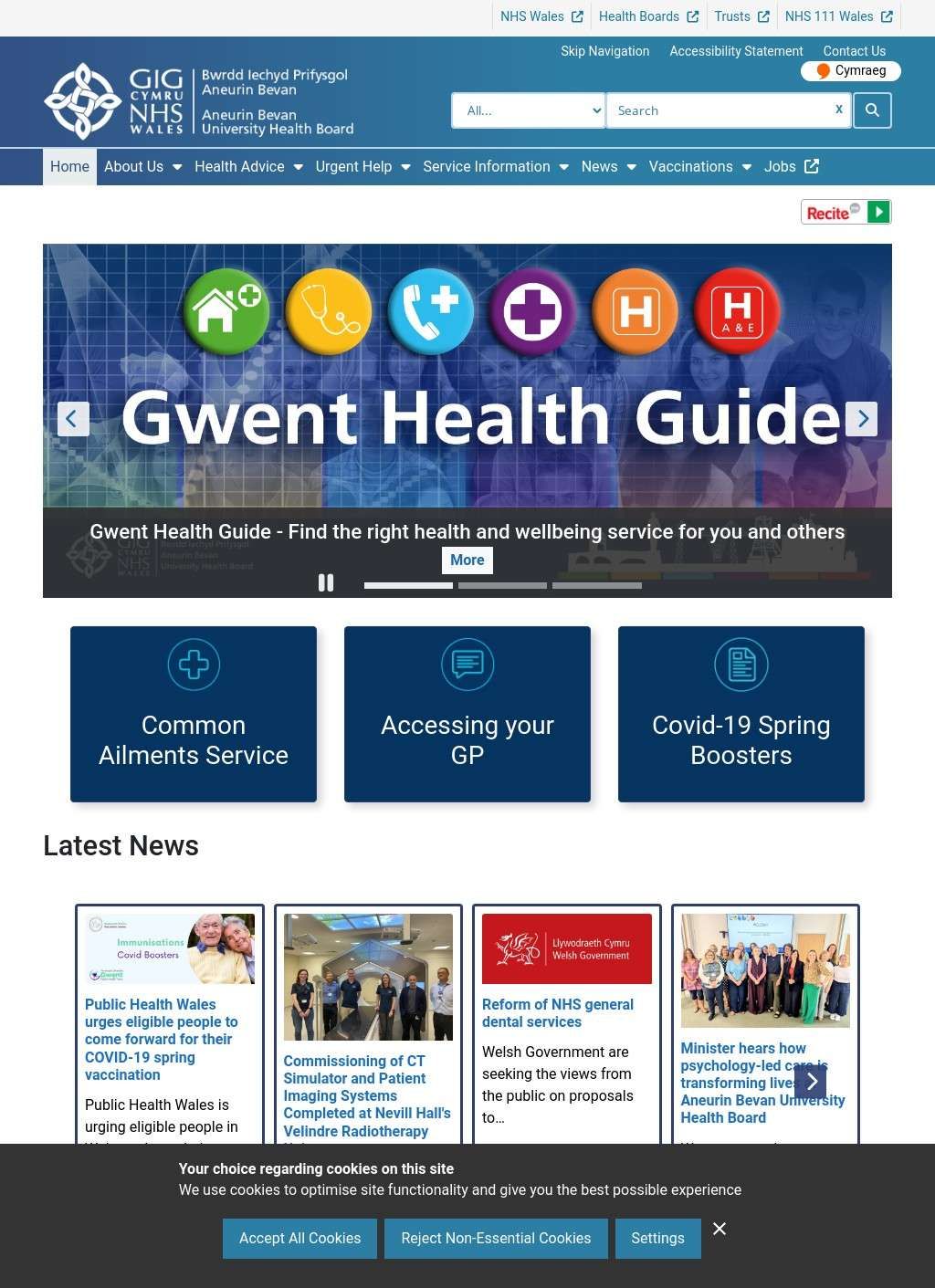Aneurin Bevan University Health Board carries profound symbolism in its name, honoring the Ebbw Vale MP who founded Britain's National Health Service while serving the healthcare needs of 600,000 residents across southeast Wales. Established in 2009 through merging smaller health authorities, this organization manages one of Wales' largest health economies, encompassing Blaenau Gwent, Caerphilly, Monmouthshire, Newport, Torfaen, and south Powys. With over 14,000 employees, two-thirds directly involved in patient care, the health board represents the region's largest employer while fulfilling its fundamental mission of free healthcare at point of delivery.
The board's hospital network reflects careful planning to balance specialized services with local accessibility. The Grange University Hospital in Cwmbran, opened ahead of schedule in 2020, serves as the specialist emergency center for the entire region. This state-of-the-art facility handles major trauma, complex surgery, and critical care, concentrating expertise and resources where they're most effective. For Blaenau Gwent residents, this means traveling to Cwmbran for serious emergencies but benefiting from consultant-led services and advanced medical technology that smaller hospitals couldn't sustain.
Local healthcare provision remains crucial for routine and less complex needs. Ysbyty Aneurin Bevan in Ebbw Vale, opened in 2010, replaced several aging community hospitals with a modern facility designed around patient dignity and clinical efficiency. This hospital provides outpatient clinics, diagnostic services, and minor injury treatment, keeping healthcare close to home for most needs. The facility's design incorporates natural light and garden views, recognizing environment's role in healing. Community services operate from this base, extending care into patients' homes.
Primary care forms healthcare's foundation, with GP practices distributed across Blaenau Gwent's communities. These practices, while independent contractors, work within frameworks established by the health board to ensure consistent service standards. Modern appointment systems, including online booking and telephone consultations, improve access despite workforce pressures. Extended hours surgeries and collaborative working between practices help manage demand. The shift toward preventive care sees practices offering more health promotion services, from smoking cessation to diabetes management programs.
Mental health services address growing recognition of psychological wellbeing's importance. Community mental health teams provide support without requiring hospital admission, working from accessible local bases. Crisis intervention services operate round-the-clock, offering alternatives to emergency departments for mental health emergencies. Specialized services for children and adolescents, older adults, and those with severe mental illness ensure targeted support. Integration with physical health services reflects understanding that mental and physical health intertwine inextricably.
Public health initiatives tackle root causes of ill health rather than just treating consequences. The health board coordinates vaccination programs, from childhood immunizations to seasonal flu campaigns. Health promotion activities target major challenges like obesity, smoking, and alcohol misuse through community partnerships. Working with local authorities and voluntary organizations multiplies impact, reaching populations who might not engage with traditional health services. These preventive approaches offer better outcomes and value than treating established diseases.
Digital transformation reshapes healthcare delivery across the board's territory. Electronic patient records improve care coordination between different services, reducing repetition and errors. Online consultation platforms proved invaluable during COVID-19 and continue offering convenient access for suitable conditions. The My Health Online system lets patients book appointments, order prescriptions, and access test results digitally. While digital exclusion remains a concern, particularly among older residents, traditional access routes remain available alongside technological innovations.
Workforce challenges mirror national NHS pressures but carry particular weight in post-industrial areas like Blaenau Gwent. Recruiting and retaining healthcare professionals requires competitive approaches, from training partnerships with universities to flexible working arrangements. The health board invests heavily in staff development, recognizing that motivated, skilled workers deliver better patient care. International recruitment supplements domestic workforce pipelines, bringing global perspectives to local healthcare delivery. Staff wellbeing programs acknowledge the emotional demands of healthcare work.
Financial pressures create constant tensions between service aspirations and available resources. The health board manages budgets exceeding £1 billion annually, requiring careful prioritization and efficiency drives. Value-based healthcare approaches focus resources on interventions delivering greatest patient benefit. Collaborative procurement with other Welsh health boards achieves economies of scale. Despite constraints, commitment to core NHS principles means patients never face charges for essential healthcare, preserving the founding vision of Aneurin Bevan.
Partnership working extends the health board's effectiveness beyond traditional boundaries. Integration with social care services, largely delivered by local authorities, creates smoother patient journeys, particularly for elderly residents needing both health and social support. Third sector organizations provide specialized services from hospice care to mental health peer support. Academic partnerships with Cardiff University and others drive research and innovation, bringing latest medical advances to local populations. These collaborations recognize health's social determinants require multi-agency responses.
Quality improvement drives continuous service enhancement despite resource constraints. Clinical audit programs monitor outcomes against best practice standards, identifying improvement opportunities. Patient feedback mechanisms, from formal complaints processes to real-time satisfaction surveys, shape service development. Serious incident investigations, conducted transparently, generate learning preventing repeated errors. The board's commitment to duty of candor means openly acknowledging when care falls short of expected standards.
Future challenges include demographic shifts toward older populations with complex health needs, recruiting sufficient workforce to meet demand, and adapting to climate change health impacts. Yet opportunities emerge through medical advances, from precision medicine to artificial intelligence supporting diagnosis. The health board's strategic planning balances immediate pressures against long-term transformation needs. For Blaenau Gwent residents, Aneurin Bevan University Health Board represents continuity with NHS founding principles while adapting to 21st-century healthcare demands, honoring its namesake's vision of comprehensive healthcare as a human right rather than commodity.
